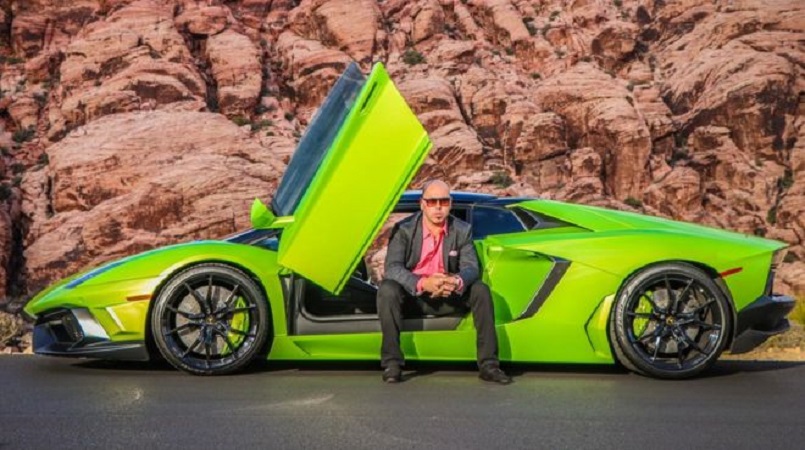
Gabriel Beltran moved from Uruguay to Miami with the dream of making it big as a drummer.
Five years ago, he was struggling to pay his rent and living on his girlfriend's student loan.
Then he made over $20m (£15m) through a little-known online retail technique: dropshipping.
And in bedrooms around the world other savvy individuals are getting rich the same way.
The sellers never see their products. They typically remain completely anonymous. And their marketing reaches hundreds of millions of people.
The process is simple: the dropshipper goes to an online Chinese marketplace and identifies a cheap product.
The seller sets up a flashy website, suggesting the product is made in the US or Europe, and adds a huge mark-up.
The dropshipper uses social media for promotion, often paying influencers to add legitimacy.
When an order is received, the seller collects the customer's money, and only then do they buy the product.
Finally, the product is shipped directly to the customer from China.
In practice, the vendors act as virtual middlemen or women.
All this is legal and often done well.
But the anonymity it confers means there is also abuse. The sale of counterfeit products is commonplace, and customers often don't receive their orders.
Gabriel started off selling fake NFL products and made $50,000 in just one month. He says he hasn't sold knock-off products since.
''Stores come and go, and they literally steal money from people," he told the BBC.
"Those stores make millions of dollars within a month and then disappear and don't even ship a product.''
Sometimes the goods aren't actual counterfeits, but may still infringe the intellectual property rights of the tech firms whose designs have, in effect, been cloned, even though the product is sold under a different brand and uses its own packaging.
Kevin David is a dropshipper who doesn't engage in the sale of such goods. But he says some of his friends have made ''hundreds of thousands a month selling knock-off AirPods''.
''It's very easy to take the moral high ground, but if a lot of people had the skillset and were making tens of thousands of dollars profit a day, then they would probably think pretty differently," he says.
